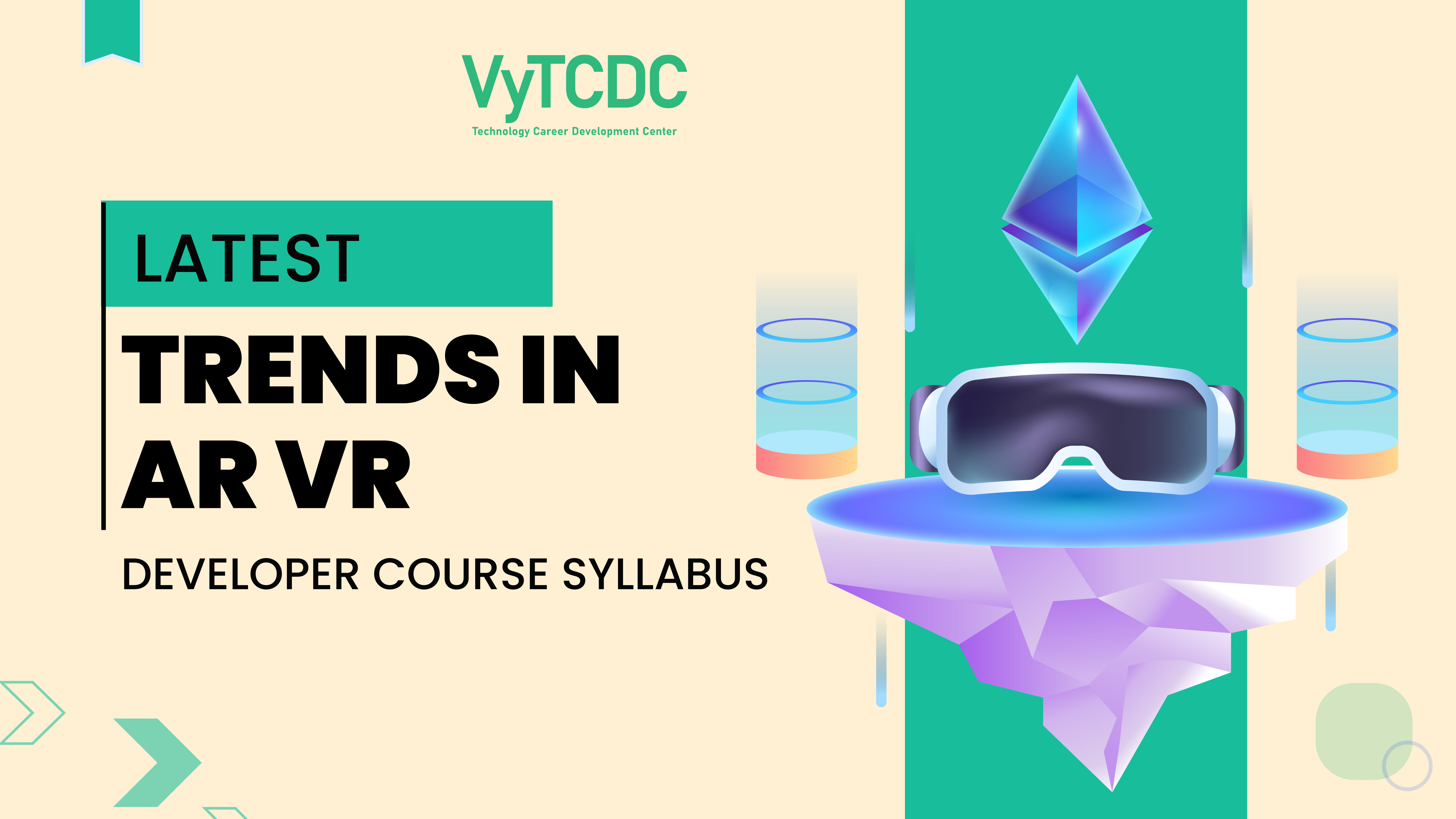As the fields of Augmented Reality (AR) and Virtual Reality (VR) continue to evolve, the demand for skilled professionals in AR VR training is on the rise. The latest trends in AR VR Developer Course syllabi reflect the industry’s rapid advancements and the need to equip developers with the latest tools and knowledge.
Introduction to AR and VR Technologies
A comprehensive AR VR Developer Course typically begins with an overview of AR and VR technologies. This foundational module covers the basic principles, history, and evolution of AR and VR. It introduces students to the key differences between AR, VR, and Mixed Reality (MR), providing a solid grounding for more advanced topics.
Understanding Hardware and Software
A crucial part of AR VR training is understanding the hardware and software involved. Students learn about various AR and VR headsets, namely, the Oculus Rift, HTC Vive, and Microsoft HoloLens. They also get hands-on experience with development platforms like Unity and Unreal Engine, which are essential for creating immersive experiences.
3D Modeling and Animation
3D modeling and animation are vital skills for AR VR developers. The latest AR VR Developer Course syllabi emphasize proficiency in tools like Blender, Maya, and 3ds Max. Students learn to create realistic 3D models and animations, which are crucial for developing engaging AR and VR experiences.
User Interface and User Experience Design
Designing intuitive and immersive user interfaces is a crucial trend in AR VR training. Courses now include modules on UI/UX design principles specific to AR and VR. Students learn to create user-friendly interfaces that enhance the overall experience, focusing on usability, accessibility, and interaction design.
Scripting and Programming
Proficiency in languages like C#, C++, and Python is a must for AR VR developers. The latest AR VR Developer Course syllabus incorporates extensive training in scripting and programming. Students learn to write scripts that control the behavior of virtual objects and interactions within the AR and VR environments.
Spatial Computing
Spatial computing is a cutting-edge trend in AR VR training. It involves understanding how to create experiences that are aware of and interact with the physical environment. Students learn to develop applications that can map and understand the real world, enabling more interactive and immersive experiences.
AR and VR Development Frameworks
Modern AR VR Developer Courses include detailed modules on development frameworks like ARCore, ARKit, and Vuforia. These frameworks enable developers to create AR applications that work on a variety of devices. Students gain hands-on experience in integrating these frameworks into their projects.
Ethics and Safety in AR and VR
As AR and VR technologies become more prevalent, ethical considerations and safety are becoming increasingly important. The latest syllabi include discussions on the moral implications of AR and VR, privacy concerns, and the physical safety of users. Students learn to develop applications that are not only engaging but also responsible and safe.
Industry Applications and Case Studies
Real-world applications and case studies are a significant trend in AR VR training. Courses now feature case studies from various industries, such as healthcare, education, gaming, and retail. Students learn how AR and VR are being applied in these fields and gain insights into the challenges and opportunities they present.
Capstone Projects and Portfolio Development
The latest AR VR Developer Courses include capstone projects to enable students to apply their acquired knowledge. These projects allow students to create comprehensive AR or VR applications, which they can showcase in their professional portfolios. This practical experience is invaluable for career advancement.
Conclusion
The AR VR Developer Course curriculum is regularly updated to stay aligned with technological advancements and industry requirements.
By incorporating the latest trends, these courses ensure that developers are well-equipped with the skills and knowledge required to excel in the dynamic field of AR and VR. Whether you’re looking to start a career in AR and VR or enhance your existing skills, enrolling in an AR VR training program that covers these trends will set you on the path to success.






